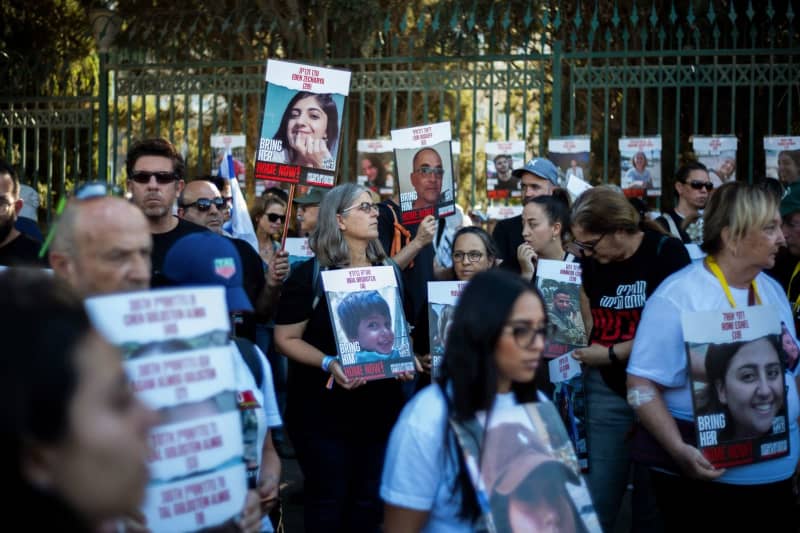On a recent Friday, thousands of demonstrators, predominantly women, gathered to block an access road leading to the Israeli parliament, known as the Knesset. This event aimed to raise awareness about the urgent demand for the release of hostages held by Hamas in the Gaza Strip. The protests were notably different from the usual weekend demonstrations, which typically take place after the Jewish holy day of Shabbat. Organized by a grassroots movement called Shift 101, the protests represent a concerted effort to draw attention to the plight of hostages taken on October 7, 2023, when Hamas and affiliated groups launched a sudden invasion into Israel, resulting in significant casualties and widespread outrage.
The ongoing protests have been a fixture in Israeli society since the mass hostage-taking incident, with families of the captives at the forefront, voicing their despair and plea for action. After the October attacks, which left 1,200 people dead, the urgency of the situation prompted these demonstrations, which call for the government to prioritize negotiations for the hostages’ safe return. Shift 101 has organized various sit-in protests throughout the week, reflecting a growing movement that seeks to unify different segments of Israeli society around the cause of bringing the hostages home.
Among those participating are mothers and family members of the hostages who have mobilized to evoke compassion and collective action from the public. They have openly pleaded with the broader community—mothers, fathers, men, and women—to set aside political differences and unite for a single, vital mission: the safe return of the hostages. A statement that circulated among participants highlighted their enduring hope and their call for solidarity, emphasizing that the issue transcends political and social divides in the increasingly polarized nation.
The Israeli government, led by Prime Minister Benjamin Netanyahu, faces difficult political dynamics. Netanyahu’s administration relies heavily on a coalition with ultra-right and religious party partners, many of whom oppose any negotiations with Hamas. This complex political landscape complicates efforts to broker a resolution for the hostages. The demonstrators’ perseverance underscores a deep frustration with the government’s approach and a growing demand for action that addresses both the humanitarian and political aspects of the hostage crisis.
The situation remains dire, with approximately 250 individuals taken hostage during the violent incursion, and estimates suggest that around half of the 100 remaining captives are still alive. The stakes are high, and the families of the hostages seek not only their loved ones’ return but also a strategy from their government that genuinely addresses their safety and well-being. The weekly protests serve as a rallying point for those yearning for change, urging the Israeli government to adopt a more proactive stance.
As the protests continue to gain momentum, the participants strive to keep the focus on the human aspect of the crisis rather than allowing it to be overshadowed by political maneuvering. Their emphatic call for unity and compassion resonates with many, reflecting a broader sentiment within Israeli society that prioritizes the lives of the hostages over internal political disputes. This grassroots initiative exemplifies the potential for collective action to challenge existing narratives and urge leadership towards a more humanitarian response amidst an ongoing crisis.

